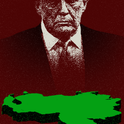When the saga of the double-decapitation of the two most senior BBC executives comes to be written, historians might care to trace it back to Dougie Smith, a shadowy backroom fixer once described as the most powerful political figure you’ve never heard of.
Google “Dougie Smith” and not much will come up, beyond the fact that he was one of the organisers of Fever, a sex party business that hosted lavish orgies in posh London venues. But his day job—splitting his time between Conservative HQ and Number 10—involved getting the “right” people into the “right’”roles.
Mostly, that involved vetting each and every Tory potential candidate for parliament with what observers called a “vice-like grip”. But, according to Tim Shipman, now the Spectator’s political editor, he also paid very close attention to inserting right-thinking people into quangos and public posts.
In June 2021, Shipman wrote a piece for the Sunday Times headlined “How the Tories weaponised woke”, which revealed how Smith had been instrumental in getting his long-standing friend Sir Robbie Gibb onto the BBC board.
It is one of the oddities of governance that five out of 13 members of the supposedly independent BBC are, in fact, appointed by the government of the day. Each region has a representative, and Smith had noticed that Dr Ashley Steel, a below-the-radar former KPMG executive who represented England, would be stepping down.
“He pressed for months to see Sir Robbie Gibb, the former No 10 communications director, put on the board of the BBC, forcing it through despite a lack of enthusiasm from Johnson,” wrote Shipman.
An analogy would be a fixer for Gordon Brown nominating Tony Blair’s chief spin doctor, Alastair Campbell, for a seat on the BBC board. Imagine the furore.
“‘He kept putting Robbie’s name on the list and Boris kept taking it off,’” Shipman reported one of his sources recalling, adding: “The plan to send Paul Dacre, the former editor of the Daily Mail, to run broadcasting watchdog Ofcom is from the same playbook.”
Smith and Gibb had known each other since the days when they had been members of the Federation of Conservative Students, a group of libertarian militants whose politics were so extreme that Tory party chairman Norman Tebbit closed it down in 1986.
Thirty-five years after those student days Smith’s plan to get his friend into the BBC succeeded: Gibb was appointed not only to the board but, crucially, to the five-strong Editorial Standards and Guidelines Committee (ESGC), which is charged with overseeing such matters as bias and impartiality—and would inevitably come to discuss the BBC’s coverage of the Middle East, and the Israel-Gaza war.
Gibb was proud to call himself a “proper Thatcherite Conservative”, assuring one audience that “I’m not a Chris Patten apologist-type Conservative”—which some might see as a tactless sideswipe at a previous BBC chairman with a rather more distinguished track record in public life.
Gibb reportedly described his mission as reforming the BBC, “or I’ll blow the place up.”
He set about finding allies, including his old friend Michael Prescott, a fellow corporate PR man and former Sunday Times journalist who was an editorial adviser to the board; and his old friend and colleague David Grossman, who was recruited to do the legwork.
Fast forward to the end of 2023, when former culture secretary Nadine Dorries published The Plot, a racy account of an alleged cabal to bring down Boris Johnson. Dougie Smith featured prominently in the narrative.
But one story leapt off the page: an account of how Gibb had tried to intervene to get a long-standing Tory backroom functionary the job of heading OfCom, the BBC regulator. In other words, the regulated party was trying to get the “right” person to oversee the BBC.
You don’t have to think about that for very long to see it’s—what’s an impartial word?—wrong.
I checked the story out: it was obviously true. When I put it to the BBC, the reaction was close to a shrug.
The BBC, in my experience, has a patchy record in defending its own journalists. But it was a different story when it came to circling the wagons around one particular Board member.
At the start of 2024 I published the results of my investigations into how, in my view, the government had effectively captured the BBC. The director general, Tim Davie, reportedly laughed it off. Take Robbie Gibb seriously? Dream on.
I doubt he’s laughing now.
In that piece, and a series of articles since in the Independent and Prospect, I have explored another facet of Gibb’s life since stepping down as a Tory spin doctor and embarking on a life of corporate PR.
In 2020 Britain’s oldest and most influential Jewish newspaper, the Jewish Chronicle, was in financial difficulties. It was rescued by a consortium led by… Sir Robbie Gibb!
There was just one catch. While Gibb was registered at Companies House as the sole director of the JC, it was immediately apparent, and never denied, that he did not personally have the funds to buy it or to finance its future operations. He was, in other words, the frontman for person or persons unknown.
Pause to consider the current furore over who should be allowed to own the Daily Telegraph, the paper which has been leading the charge against the BBC in recent days. The editor and staff are in open revolt against the idea that a great British newspaper should fall into the wrong hands. It is, they say, a betrayal of a fundamental tenet of democracy.
But at least we know—more or less—who the backers of the bid for the Telegraph are. With the JC, which hugely influences Jewish opinion about Israel, we are kept in the dark.
A staffer at the paper, Lee Harpin, remembered that Gibb popped into the office on press days and someone told the team that the new owners—whoever they were—wanted more views “well to the right of the Tory party.”
But it gets worse. Gibb’s stewardship of the paper was extremely controversial. The JC became mired in ethical and editorial failings. Twice the press regulator IPSO has had to arrange additional training for its staff after numerous complaints, and as an alternative to a full-blown standards investigation.
The editor hand-picked by Gibb eventually published a hoaxed story which led to a high-profile security investigation in Israel. No fewer than six leading columnists walked out, damning the paper as having become a partisan, ideological instrument. The editor himself left shortly afterwards. Still, the paper refused to say who was ultimately calling the shots.
Now, you may read this sorry story and agree that it would be unacceptable for Gibb to be involved in any reviews of the BBC’s coverage of Israel-Gaza. Imagine you were Lyse Doucet or Jeremy Bowen knowing that such an avowedly partial figure was making judgements about your coverage.
I contacted the BBC to enquire if Gibb had, in fact, recused himself. The short answer: no.
It seems Gibb doesn’t think he should recuse himself. Perhaps—one can only speculate—Gibb considers himself a perfect arbiter of bias wherever he sees it and it would never occur to him that he might himself be biased.
In fact, his involvement, I’m told, is the opposite. When it came to reviews about the BBC’s coverage of the Middle East he “led them, owned them, drove them. Put them on the agenda. He had his researcher, David Grossman, do the research.”
Now, none of this amounts to a coup. But, to my eyes, it does suggest that something has gone very wrong in the way the BBC is governed.
The 13-strong board—including five appointed by the government of the day (and Gibb was reappointed for three years in the dying days of the Sunak administration)—has very few people with any personal experience of journalism.
That means that the ESGC has even more importance as a forum for interrogating the corporation’s journalism. A veteran former news executive told me: “That may explain why Gibb has an outsized influence on the whole board. It would matter less if he was one of six people with a solid journalistic background.”
So, in the run-up to Charter renewal—the 10 yearly process whereby the BBC’s mandate is refreshed—the government has the opportunity to think about whether there are better ways of scrutinising and, where appropriate, defending the BBC’s journalism. Keir Starmer, if he is concentrating, will see the need to Farage-proof public service media.
He could use his imagination to ponder what Britain’s media landscape would look like without the BBC. Does he really want an unholy alliance of Murdoch (or whoever comes after Rupert), Lord Rothermere and whoever ends up owning the Telegraph to mediate most of our national information and conversations? With Elon Musk and Mark Zuckerberg to be in charge of our algorithms and Sir Paul Marshall dominating what we see?
The Murdoch press, which sometimes mounts a high horse to lament the BBC’s ethical failings, seems to forget that it was, for many years, something of a criminal enterprise in this country. As the editor of the Guardian, I published the stories of phone hacking carried out by the News of the World, which led to the eventual closure of the paper. Rupert Murdoch’s News Group Newspapers has subsequently paid out more than £1bn in settlements and legal fees.
The BBC has done the right thing to apologise to Donald Trump, while declining to pay so much as a cent in damages. If the case does ever come to court in Florida—which I very much doubt—they should point out that Trump is increasingly prone to making extremely long and rambling speeches and that, most of the time, journalists do him something of a favour by editing him in a way which makes him seem rather more coherent than he is in real life.
The Panorama edit was a mistake—and possibly the Newsnight one that has also come to light. But James Ball has demonstrated in the New World that Michael Prescott, in his rush to accuse the BBC of doctoring the Trump speech, himself doctored it in a similarly misleading way.
The Prescott dossier—so knowingly leaked to the Telegraph—already looks much less substantial than as it was billed. The BBC chair, Samir Shah, has responded reasonably robustly and convincingly in his letter to the Culture Select Committee to many of the charges. He points out that the BBC’s own processes raised some of the issues in the “dossier” and that some of the failings identified are already being addressed. That doesn’t invalidate the entire document, but it may render it less damning that the original cherry-picked highlights suggested.
For further reading, I recommend a forensic 3,000-word analysis of the dossier by the writer and broadcaster David Aaronovitch on his personal Substack. I mean no disrespect to Messrs Prescott or Gibb to say that Aaronovitch’s journalistic career has been at least as, if not more, distinguished than theirs—and, unlike them, he didn’t bail out of journalism in favour of lucrative jobs in corporate PR. His Radio 4 series The Briefing Room is a model of how to analyse issues from all sides.
He says of Prescott: “His objections range from the debatable to the downright partisan,... Good journalists at the BBC will find it hard to accept castigation from someone who either leaves out vital information or hasn’t done the most basic research. Ironically, Prescott’s letter had me worrying, not about the BBC’s journalism, but about how the preoccupations and prejudices of ‘independent advisors’ had come to play such a major role in guiding editorial discussion.”
I also recommend a 7,700-word essay by the writer Daniel Trilling in the new online magazine Equator in which he vigorously argues that the BBC’s fear of being seen as biased against Israel led to a profound and fundamental miscalibration of its coverage of the war in Gaza.
You may agree or disagree with that, but you would not guess from the Prescott dossier that there even are two sides to this argument. In banging the drum for their version of impartiality they have represented only one side. And they seem utterly oblivious to the irony of that.
And this is why the argument leads back to the fundamental incoherence of the governance arrangements of one of the world’s greatest news organisations. You look at the composition of the BBC board—a worthy enough collection of people drawn mainly from the ranks of business, finance and law—and wonder which of them is really equipped to arbitrate on such fine distinctions in editorial judgement?
“Sexed-up” dossiers have an unfortunate resonance for the BBC. It was a sexed-up report by one Andrew Gilligan in 2003—himself claiming that the government had sexed-up intelligence over Iraq—that led to the defenestration of the then director general and chair of the BBC.
I would not be so crude as to suggest that Prescott has sexed up his own dossier, but it is now clear that there is much less to it than meets the eye. Wise old BBC hands compare the tone and lack of balance with the thorough systematic reviews the BBC used to commission. Alastair Campbell—no stranger to spin in his past life—took one look at it and described it as a MTBL: a “memo to be leaked.”
If any good can come out of this dismal episode, it at least focuses a spotlight on the role of Sir Robbie Gibb. SNP and Lib Dem MPs are calling for his removal. But he was put there at the pleasure of Boris Johnson and Rishi Sunak and is probably unsackable. If he had a modicum of self-knowledge he would now resign.













